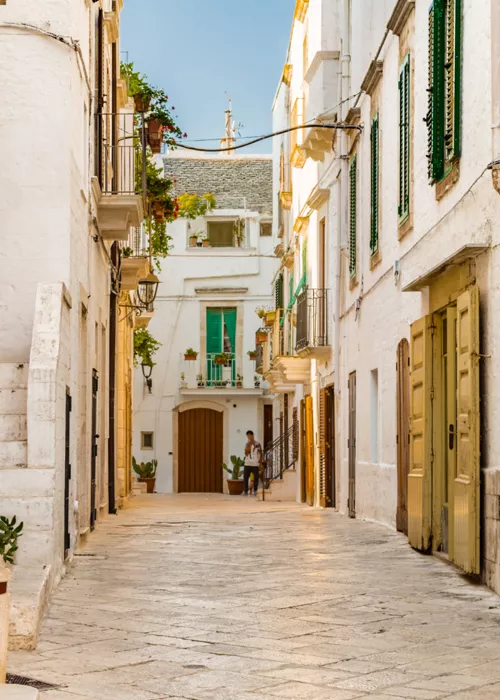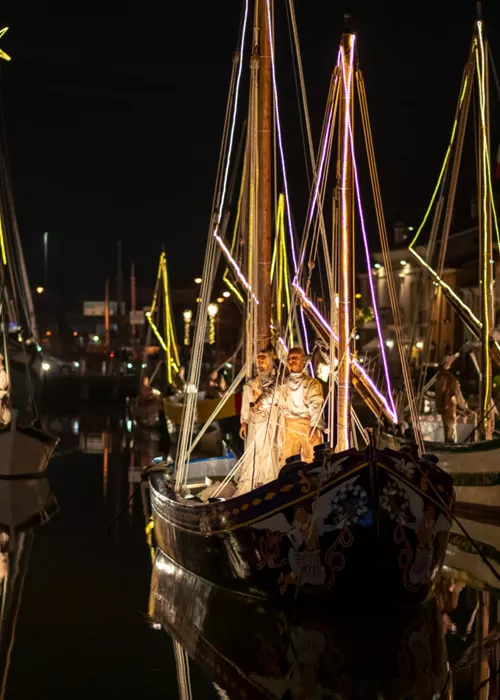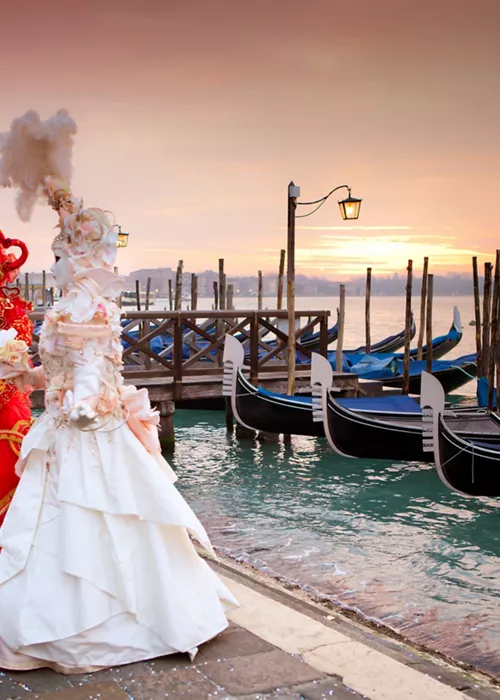Women's Day: history and symbolism in Italy
5 minutes
On March 8th, International Day of Women's Rights, established by the United Nations, we celebrate social, political and economic achievements achieved over the centuries of struggle for equal rights. This is also an opportunity to reflect on the violence that women still suffer today and on the discrimination that limits their freedom, to better understand how far there still is to go.
How Women's Day came about and why it’s celebrated on March 8th. In this article, through history and events, we find out everything there is to know about this important yearly celebration.
History and origins of Women's Day

According to tradition, Women's Day has been celebrated in some countries since 1908, in memory of the workers who lost their lives in a factory fire in New York on March 8th of that year, although there is no actual historical evidence that this event occurred. On February 28th, 1909, the American Socialist Party promoted a demonstration in support of female workers protesting for better working conditions, higher wages and the right to vote; a "Women's Day" was thus established.
The factory fire of which historical evidence does exist however, occurred on March 25th, 1911; over a hundred workers and twenty men died, it was the most serious industrial accident in American history and had the effect of multiplying the protests.
The First World War interrupted the celebrations of Women's Day in the countries involved in the conflict. The anniversary of March 8th is actually linked to the protest demonstration by Russian women in St. Petersburg in 1917, when they took to the streets to demand an end to the war.
Women's Day in Italy

In Italy the first Women's Day was celebrated in 1922, but it took on a particular meaning in 1945, when the Women's Union in Italy celebrated in areas already freed from fascism.
In 1977, with a resolution of the United Nations Organization, the International Day of Women's Rights was established, which is an important event to reflect on the path traveled and to look to the future, with a global approach. This year, the UN has chosen the world of work as the central theme for the March 8th anniversary. In particular, digital technology is important in issues related to the empowerment opportunities of women's work and for progress on gender equality.
Why mimosa flowers are gifted for Women's Day

In Italy it’s customary to give a bunch of mimosas as a gift alongside the organization of meetings, recreational and cultural initiatives to celebrate the achievements thus far and to reflect on the challenges that remain for the future.
Many wonder why the mimosa is the symbol of Women's Day. The answer lies with three women. Teresa Noce, Rita Montagnana, and Teresa Mattei proposed the flower in 1946, as a symbol which blossoms at the beginning of March and which, despite appearing fragile, grows even on the most difficult terrains. An element that is, therefore, perfect for representing the struggle for women's emancipation.
Perhaps less symbolic, but equally iconic, is the typical dessert for Women's Day in Italy. The mimosa cake, a gastronomic tribute to the yellow flower, made of sponge cake and custard. It is a true made in Italy pastry classic, mouth watering and spectacular, born in the 50s in Rieti, Lazio.
A journey of important women in Italian history of yesterday and today

Women's Day is also an opportunity to celebrate the women who with their history, their passion and their courage have revolutionized the world, marking an important stage in the history of civilization progress.
One of the women of Italian nationality who deserve to be remembered on the special day of March 8th, is Francesca Saverio Cabrini. She crossed the Atlantic 28 times and even climbed the Andes. Considered the patroness of emigrants, she founded the Order of the Missionaries of the Sacred Heart of Jesus. Thanks to her, schools, kindergartens, boarding schools, orphanages and hospitals were born dedicated to assisting Italian immigrants in America. She was the first US citizen to be proclaimed a saint, in 1946.
Women's Day is an opportunity to celebrate many compatriots who have contributed to the progress of civilization in Italy. Like Grazia Deledda, who was the first Italian woman to receive the Nobel Prize for literature in 1926. Rita Levi Montalcini, Nobel for medicine in 1986. Margherita Hack, astrophysicist and science popularizer famous all over the world. Lina Wertmüller, first woman to receive an Oscar nomination for Best Director, in 1977, for the film Pasqualino Settebellezze, to then win it in 2020, as a recognition for her career. Just to name a few.
And let's not forget Nilde Iotti, the first woman to be elected President of the Chamber of Deputies in 1979, a position she held until 1992, and Tina Anselmi, the first to hold the position of minister in Italy in 1976.
Many Italians deserve to be remembered as "explorers", for the courage to travel and have new experiences in other countries. The journalist Cristina Trivulzio di Belgiojoso, who was the first Italian traveler of which there’s documentation, through her travel diaries in Europe and as far as the Middle East. Carla Serena and Amalia Nizzoli, who respectively in Iran and Egypt were special observers of Arab women beyond prejudice. Giuseppina Croci, an expert spinning mill worker, who in 1890 left for Shanghai to instruct Chinese women in the use of mechanical spinning machines. Elena d'Orléans, wife of Duke Emanuele Filiberto, known as the "Bedouin princess" for her individual travels, without husband and family, in Africa. The list of “female adventurers” is long. Eva Mameli Calvino, famous botanist, who worked in Cuba. Mantea, the Piedmontese baroness Gina Sobrero, who reached as far as Hawaii. Adriana Dottorelli, who traveled for pleasure with her husband in America in the 1930s, and was well known in the United States.
Among contemporary women, Francesca Bonardi Tucci certainly deserves to be mentioned, who passed away in 2014. In recent years she was the Superintendent for the archaeological heritage of Emilia Romagna, Lombardy and Sardinia. In her youth she had accompanied her husband as a photographer in the East, a well-known scholar. His photos are precious evidence of how travel habits have changed over the course of a century.
Women who have "left their mark" in history such as "AstroSamantha", Samantha Cristoforetti, the first Italian to fly into space and the first European to command the International Space Station.
The list of women who have made history with their extraordinary lives and who have contributed to breaking down the so-called "glass ceiling" is endless. But March 8th is dedicated not only to famous names, which appear in books or in the news. International Women's Rights Day celebrates above all the "anonymous heroines", whose names have been lost in the passage of time, but whom with their courage or their sacrifice have made it possible to achieve the victories of civilization that make women freer of Today.


















